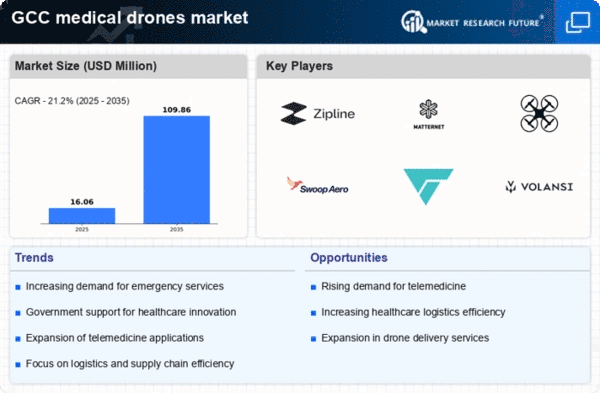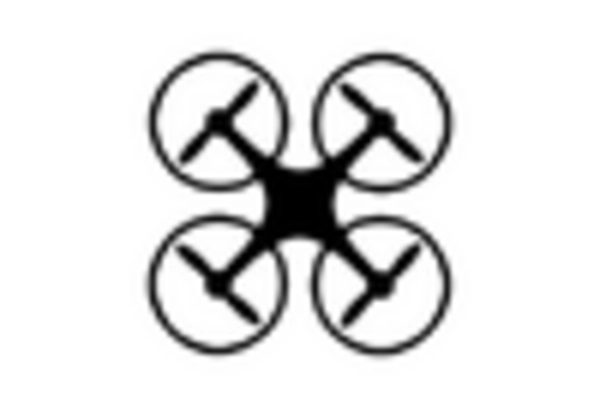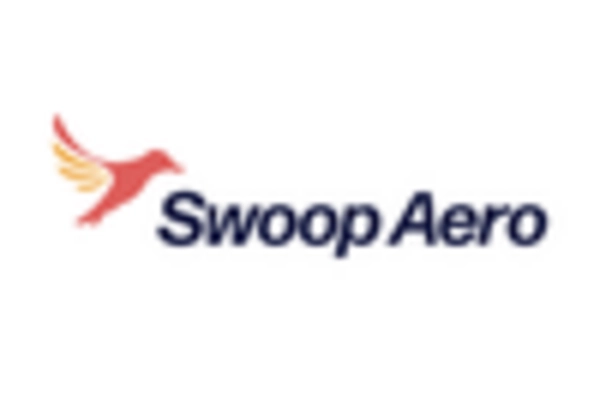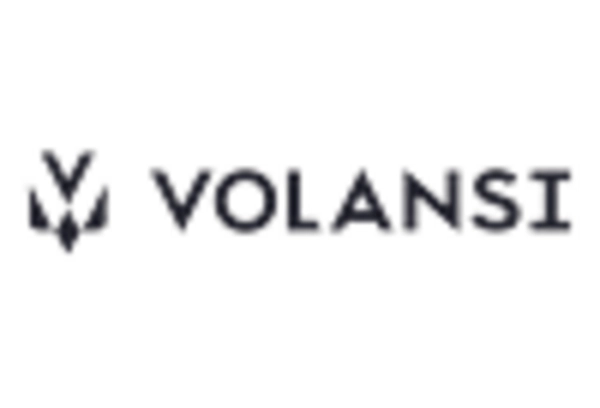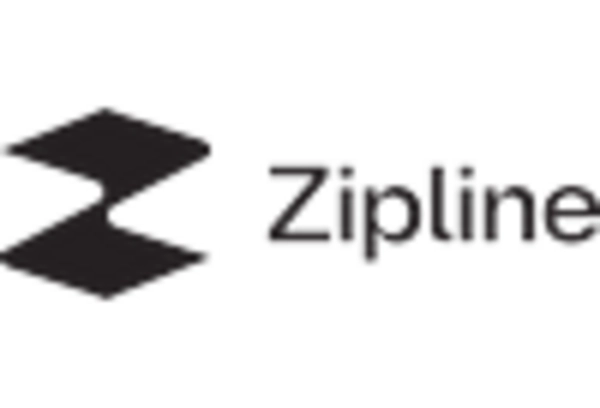Rising Healthcare Expenditure
Increasing healthcare expenditure in the GCC region is a key driver for the medical drones market. As governments and private entities invest more in healthcare infrastructure, the demand for innovative solutions to enhance service delivery rises. The healthcare spending in the GCC is projected to reach $104 billion by 2025, creating a fertile ground for the adoption of medical drones. This investment is likely to facilitate the integration of advanced technologies, including drones, into healthcare logistics, thereby improving access to medical supplies and services. The medical drones market stands to benefit significantly from this upward trend in healthcare spending.
Advancements in Drone Technology
Technological innovations are propelling the medical drones market forward, with advancements in drone capabilities enhancing their operational efficiency. Features such as improved battery life, enhanced payload capacities, and sophisticated navigation systems are becoming increasingly prevalent. In the GCC, companies are investing in research and development to create drones that can carry heavier loads over longer distances. For instance, some drones are now capable of transporting up to 5 kg of medical supplies, which significantly expands their utility in healthcare logistics. This technological evolution not only streamlines supply chains but also positions the medical drones market as a vital component of modern healthcare delivery.
Government Initiatives and Funding
Government initiatives aimed at promoting innovation in healthcare logistics are significantly impacting the medical drones market. In the GCC, various governments are allocating funds to support the integration of drone technology into healthcare systems. These initiatives often include grants and subsidies for research and development, as well as pilot programs to test drone applications in real-world scenarios. For example, the UAE has launched several projects to explore the use of drones for medical deliveries, which could potentially lead to a market valuation exceeding $1 billion by 2026. Such government backing is crucial for fostering an environment conducive to growth in the medical drones market.
Increasing Demand for Timely Medical Deliveries
The medical drones market is experiencing a surge in demand for timely medical deliveries, particularly in remote and underserved areas. This demand is driven by the need for rapid transportation of medical supplies, including vaccines, blood products, and essential medications. In the GCC region, the healthcare sector is increasingly recognizing the potential of drones to enhance logistics efficiency. Reports indicate that the market for medical drones could reach approximately $1.5 billion by 2027, reflecting a compound annual growth rate (CAGR) of around 15%. This growth is indicative of the critical role that timely deliveries play in improving patient outcomes and operational efficiency within healthcare systems.
Growing Awareness of Drone Applications in Healthcare
There is a growing awareness of the potential applications of drones in healthcare, which is positively influencing the medical drones market. Stakeholders, including healthcare providers and policymakers, are increasingly recognizing the benefits of using drones for various medical logistics tasks. This awareness is leading to more discussions and initiatives aimed at integrating drone technology into existing healthcare frameworks. In the GCC, educational campaigns and workshops are being organized to inform healthcare professionals about the advantages of drone usage, such as cost-effectiveness and efficiency. This heightened awareness is expected to drive market growth as more entities consider adopting drone solutions for medical deliveries.


